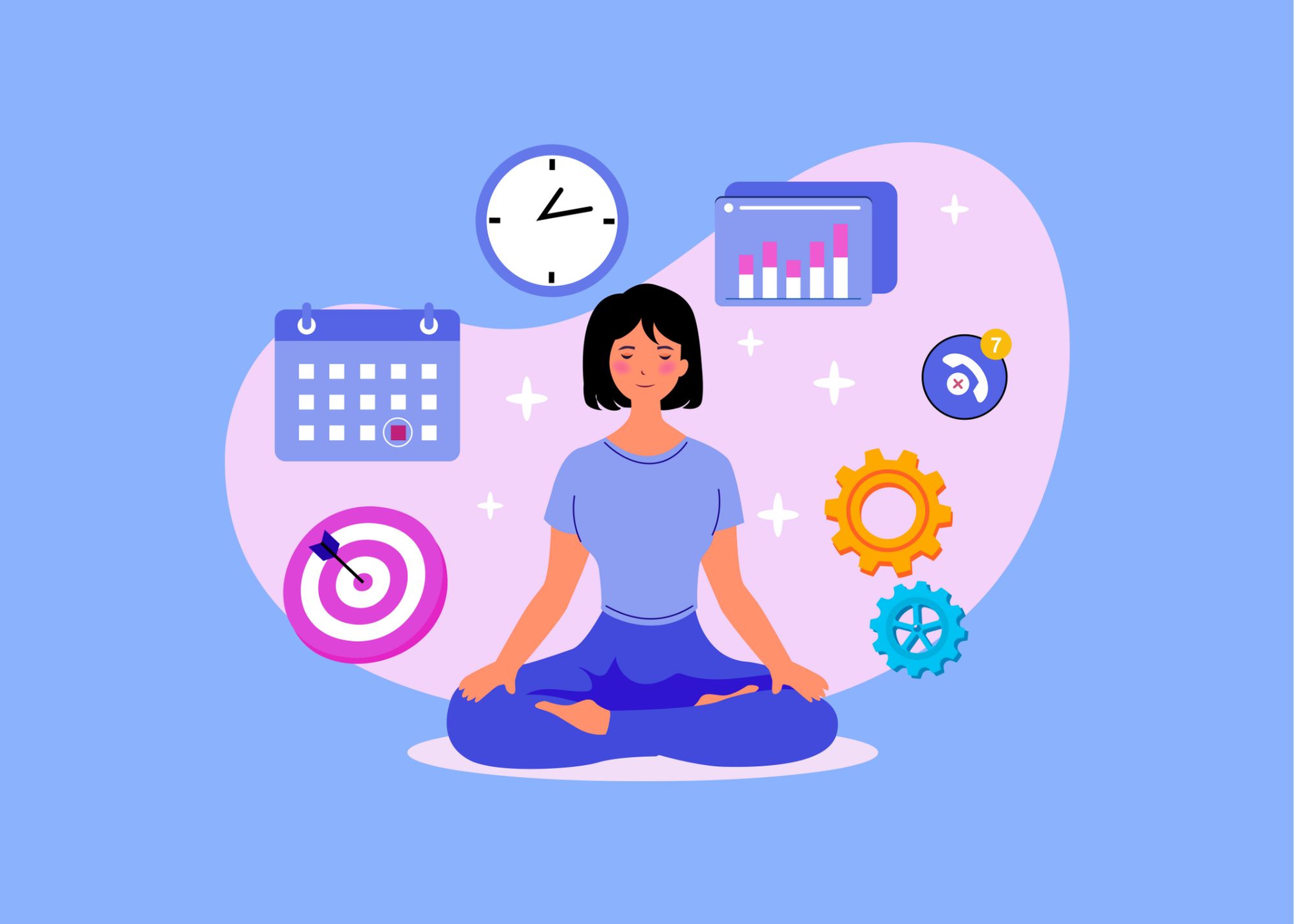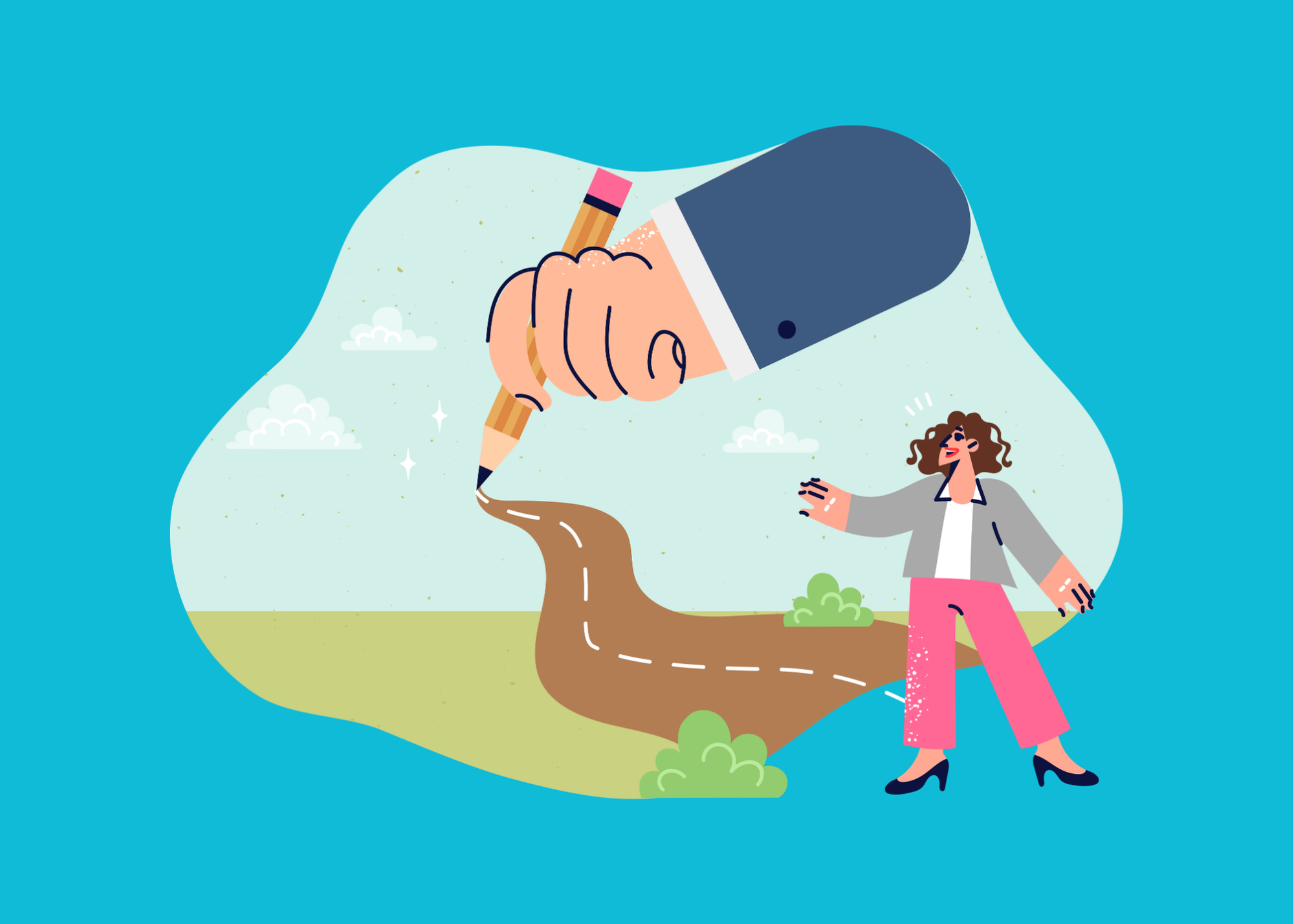Knowing Your “Why”: The “5 Whys” Exercise Gets to the Heart of the Matter for Meaningful Change
Understanding why you do what you do isn’t just a philosophical exercise; it’s the foundation for sustainable motivation, effective decision-making, and meaningful progress.
What Is Psychological Safety and Why Is It Important for Employee Wellness?
For high achievers, psychological safety is especially important. These individuals often derive much of their identity and self-worth from their work.
Health Coach vs Therapist: Understanding the Differences in Chronic Stress Management and Burnout Recovery
Health coaches and therapists both play critical roles in addressing chronic stress and burnout, but their approaches and scopes of practice differ.
Making Time: The Key to Achieving Your Biggest Goals
Determination can only get you so far. Intentionally allocate specific chunks of time in your schedule for the actions, skills, and practices required to achieve your goals.
Quitting Is an Act of Power, Not Weakness
Quitting isn’t about giving up. It’s about recognizing when something no longer serves you and having the courage to walk away.
When Burnout Recovery Changes Everything: Realigning Your Career After Healing
When the fog of burnout lifts and the wounds of trauma begin to heal, you might find that the career you once clung to no longer feels like home.
Action Plan Confidence Check: The Key to Successful Next Steps Towards Your Goals
When you choose actions that push you just enough to stretch your capacity, yet are still within reach, you create a pathway for steady, consistent progress.
The Importance of Living Authentically: Designing a Life Well Lived
Living authentically is about aligning your identity, core values, and goals with the life you create. It is an act of courage, intention, and self-respect that paves the way to deep health and fulfillment.
4 Books to Help You Recognize Trauma’s Hidden Influence: When Success Masks Survival Mechanisms
A lot of what we call "ambition" is sometimes just unresolved trauma in a power suit. Perfectionism. People-pleasing. Relentless work ethic. Hyper-independence.
The Minimum Effective Dose: Embracing the Least Amount of Effort Needed to Make an Impact
The “minimum effective dose” (MED)— means identifying the least amount of effort needed to create meaningful progress. This principle isn’t about laziness or apathy; it’s about working smarter, not harder.
The Tournament of Priorities: Use Playoff Brackets to Determine Your Actual Priorities
“If everything is a priority, then nothing is a priority.” It’s difficult to determine which tasks truly deserve your time and energy, and which are simply distractions or obligations that you've been conditioned to believe are urgent.
Lifelong Learning: Commit to Continuous Education for Personal Growth and Deep Health
Cultivating a mindset of continuous education is not just about acquiring new skills or advancing your career—it’s a powerful tool for enhancing personal growth and achieving deep health.
When Toxic Workplaces Cause Trauma: Understanding the Impact and Path to Recovery
Toxic workplaces are more than just unpleasant; they can be profoundly damaging, leaving lasting emotional and psychological scars.
How Resilient Are You?: Resilience Is Crucial Amidst Adversity, Chronic Stress, and Burnout
Resilience is not a singular trait but a multifaceted capacity that allows individuals to adapt, recover, and thrive despite adversity.
Want, Willing, Won’t: Use This Simple Exercise to Figure Out Your Boundaries for Change
The Want, Willing, Won’t framework helps you distinguish between what you want to change, what you are willing to change, and what you won’t change to determine what solutions are sustainable and realistic.
The Art of Feedback: Giving and Receiving from a Growth Mindset
At its core, feedback is a means of communication that aligns our actions with desired outcomes. It provides clarity, fosters accountability, and helps us see blind spots.
Understanding and Completing the Trauma Cycle: The Importance of Healing
Unresolved trauma doesn’t simply vanish with time. Instead, it can persist, shaping behaviors, relationships, and overall well-being.
Practical, Everyday Ideas for Decreasing Stress and Promoting Recovery
This article explores actionable strategies to decrease stress and promote recovery. These ideas are designed to fit seamlessly into busy schedules and can be adapted to suit your personal preferences and lifestyle.
Looking Back, Looking Ahead: How to Evaluate Your Own Progress (and Feel Good About It)
Progress can sometimes feel elusive and horizons can feel like they keep moving. It’s essential to reflect on where you’ve been, celebrate your achievements, and plan your next steps.
Feeling Stuck and Unsure What to Do Next? How to Get Unstuck and Move Forward
Behavioral psychology shows that small, intentional actions can trigger a ripple effect, creating momentum and clarity where there was once stagnation.



















